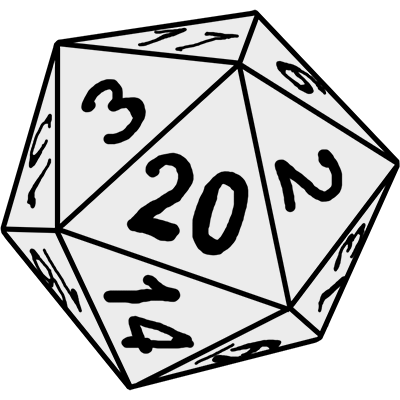
Dungeons&Dragons
Character Classes
People have jobs, but adventurers have classes.
°°°°°°Class defines an adventurer’s skillset: Wizards do magic, druids interface with nature, and barbarians hit things. Not a job or an area of study, classes are more like occupations or callings. A bard, for example, might not get paid to play music, but they weave magical music-playing into their life and ambitions.
Advancing in a class makes a player’s character more powerful and better able to affect change in the world. It broadens their skillset and better equips them to be heroes.
°°°°°°Some players pick a class by flipping through the D&D Player’s Handbook until they find a picture they like. That’s fine, but you’ll have way more fun if you consider what role you want your hero to have first. Choosing a class before choosing your preferred role can lead to more “What would a typical barbarian do here?” moments than “How can I best express my character here?” moments.
°°°°°°Think about how you want to participate in a D&D game, the kinds of things you want your character to do or what you want their personality to be. Do you want to lay low until an opportunity presents itself? Are you constantly ingratiating yourself with people? Are you obsessive about growing stronger? Are you charismatic enough to collect a cult? How will you interact with your party and with the world your Dungeon Master presents you? This will obviously change on a case-by-case basis, yet it’s helpful to have some guiding principles in your head. For example, there are lots of different kinds of wizards—innocent and bookish or megalomaniac and chaos-driven, for example—but also, characters of two classes can have the same role: a master tactician fighter and a master tactician wizard.
°°°°°°The first rule of D&D is that there are no hard-and-fast rules about D&D. If you want to play a monk who spent most of their time at the monastery translating archaic texts, give them high intelligence instead of dexterity or wisdom and see what happens. If you really like the warlock’s pact magic system and none of the wizard’s arcane traditions, then just ask your dungeon master what you can do. A lot of this stuff is meant as guiding principles, not mandates.
Before you begin, remember:
Classes
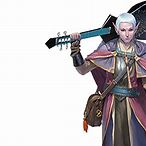
Bard
"An inspiring magician whose power echoes the music of creation."
- Hit Die: d8
- Primary Ability: Charisma
- Saves: Dexterity and Charisma
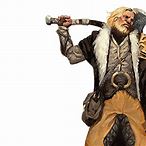
Barbarian
"A fierce warrior of primitive background who can enter a battle rage."
- Hit Die: d12
- Primary Ability: Strength
- Saves: Strength and Constitution
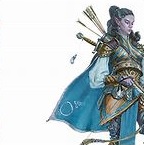
Ranger
"A warrior who combats threats on the edge of civilization."
- Hit Die: d10
- Primary Ability: Dexterity and Wisdom
- Saves: Strength and Dexterity

Rogue
"A scoundrel who uses stealth and trickery to overcome obstacles and enemies."
- Hit Die: d8
- Primary Ability: Dexterity
- Saves: Dexterity and Intelligence
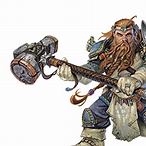
Cleric
"A priestly who wields divine magic in service of a higher power."
- Hit Die: d8
- Primary Ability: Wisdom
- Saves: Charisma and Wisdom
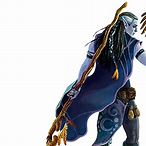
Druid
"A priest of the Old Faith, wielding the powers of nature and adopting animal forms."
- Hit Die: d8
- Primary Ability: Wisdom
- Saves: Intelligence and Wisdom

Fighter
"A master of martial combat, skilled with a variety of weapons and armor."
- Hit Die: d10
- Primary Ability: Strength or Dexterity
- Saves: Strength and Constitution

Monk
"A master of martial arts, harnessing the power of the body in pursuit of physical and spiritual perfection."
- Hit Die: d8
- Primary Ability: Dexterity and Wisdom
- Saves: Strength and Dexterity
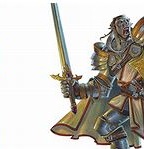
Paladin
"A holy warrior bound to a sacred oath."
- Hit Die: d10
- Primary Ability:Strength and Charisma
- Saves: Wisdom and Charisma
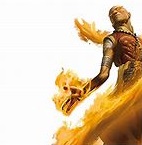
Sorceror
"A spellcaster who draws on inherent magic from a gift or bloodline."
- Hit Die: d6
- Primary Ability: Charisma
- Saves: Constitution and Charisma
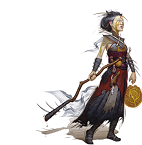
Warlock
"A wielder of magic that is derived from a bargain with an extraplanar entity."
- Hit Die: d8
- Primary Ability: Charisma
- Saves: Wisdom and Charisma

Wizard
"A scholarly magic-user capable of manipulating the structures of reality."
- Hit Die: d6
- Ability: Intelligence
- Saves: Intelligence and Wisdom